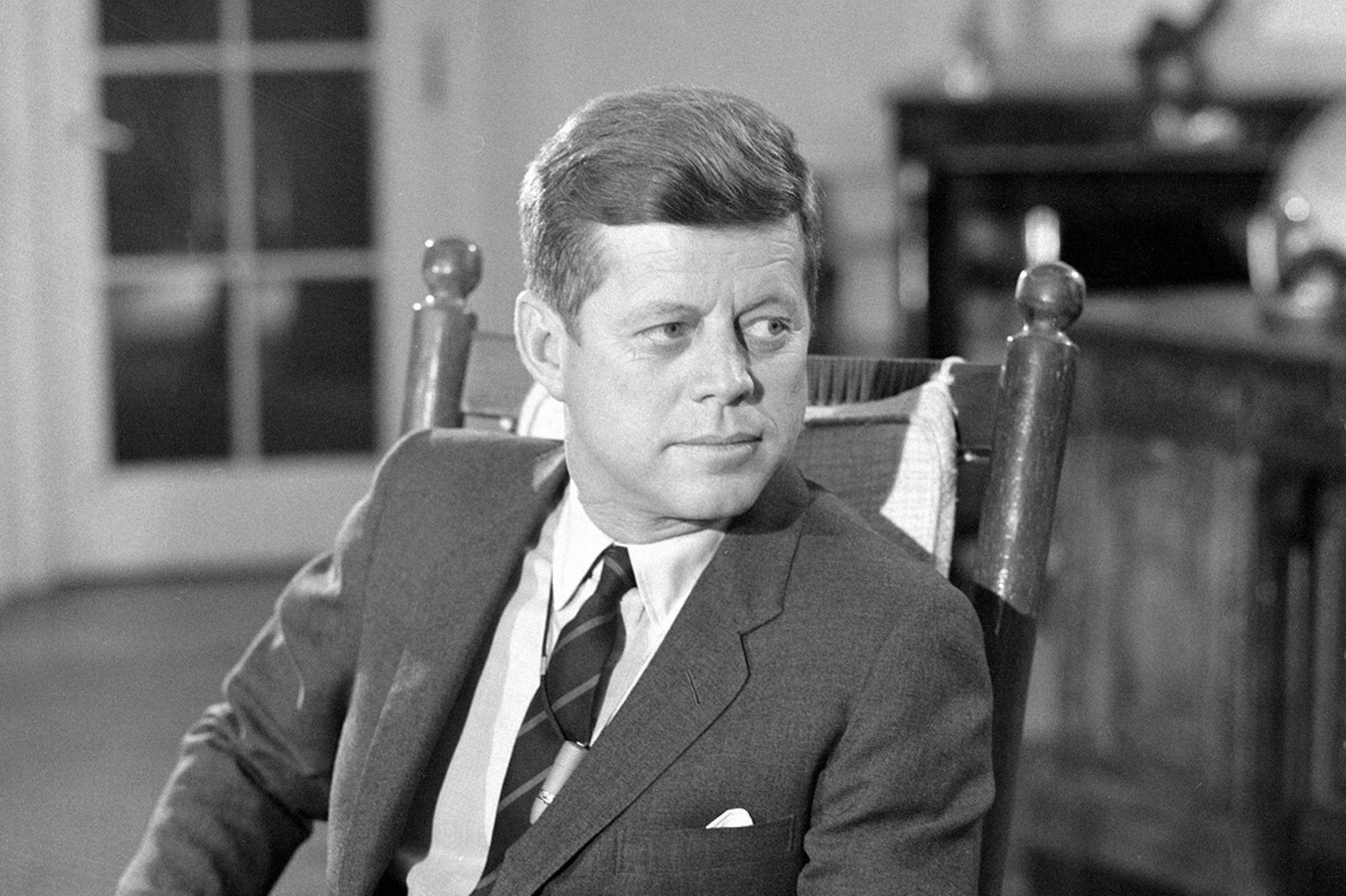JFK IQ: Uncovering The Genius Behind The Iconic Presidency
Let’s talk about JFK IQ and why it matters! John F. Kennedy, or JFK, wasn’t just a handsome president with charm—he had brains to match. His intelligence played a huge role in shaping one of the most iconic periods in American history. But how smart was JFK really? And what can we learn from his intellectual prowess today? This article dives deep into the numbers, stories, and facts that make JFK’s IQ so fascinating.
When you think of JFK, you might picture Camelot, the Cuban Missile Crisis, or his inspiring speeches. But behind all the charisma was a brilliant mind that navigated some of the toughest challenges of the 20th century. Understanding JFK’s IQ gives us insight into not just his leadership style but also how intelligence shapes decision-making at the highest levels.
Now, buckle up because we’re diving headfirst into the world of JFK’s intellect, breaking down myths, sharing surprising facts, and exploring why his IQ still resonates with people today. Whether you’re a history buff or someone curious about leadership and intelligence, this ride is for you.
- White Almond Shape Nail Designs
- Is Carrie Underwood Liberal
- Price Of Gas At Bj S Wholesale
- Who Is Benjamin Netanyahu S Wife
- Chesapeake Inn Marina
Who Was JFK? A Quick Biography
Before we dive into JFK’s IQ, let’s refresh ourselves on who this legendary figure was. John Fitzgerald Kennedy, born on May 29, 1917, in Brookline, Massachusetts, wasn’t your average politician. He came from a wealthy Irish-American family and grew up surrounded by ambition and education. JFK graduated from Harvard University in 1940 with a degree in international affairs, setting the stage for his future career.
Early Life and Education
JFK’s early life was marked by both privilege and perseverance. Despite battling numerous health issues, including Addison’s disease, he excelled academically and athletically. His thesis, "Why England Slept," became the foundation for his book "Why England Slept," published in 1940. This work showcased his analytical skills and keen understanding of global politics even before he entered public service.
Political Career and Presidency
After serving in World War II as a naval officer, JFK entered politics, first as a congressman and later as a senator. In 1960, he became the youngest elected U.S. president at the age of 43. During his presidency, he tackled issues like civil rights, space exploration, and the Cold War. His ability to think critically under pressure earned him a reputation as one of America’s most intelligent leaders.
- How Many Games Are There In The Nfl Regular Season
- Caitlin Clark Dual Citizenship Canada
- The Jeffersons Cast Dead Or Alive
- How Are The Jenners And Kardashians Related
- The Necklace Of The Titanic
JFK IQ: The Numbers Behind the Genius
So, what was JFK’s IQ? Estimates vary, but many sources suggest his IQ was around 143, placing him in the top 2% of the population. While we don’t have official records, this number aligns with his academic achievements and problem-solving abilities during his presidency. Let’s break it down further:
- JFK scored high on verbal and analytical tests throughout his education.
- His ability to process complex information quickly set him apart from his peers.
- He demonstrated exceptional memory and recall, which helped him in negotiations and public speaking.
The Impact of JFK’s High IQ on His Presidency
Having a high IQ doesn’t automatically make someone a great leader, but in JFK’s case, his intelligence played a critical role in his success. Here’s how:
1. Crisis Management
One of JFK’s defining moments was the Cuban Missile Crisis in 1962. Faced with the threat of nuclear war, JFK used his analytical skills to carefully weigh options and negotiate a peaceful resolution. His ability to think strategically and stay calm under pressure prevented a catastrophic conflict.
2. Visionary Leadership
JFK’s vision for America extended beyond domestic policy. His famous speech challenging the nation to land a man on the moon by the end of the decade showcased his forward-thinking mindset. His understanding of science and technology inspired a generation and propelled the U.S. into the Space Age.
3. Communication Skills
As a gifted orator, JFK used his intelligence to craft compelling speeches that resonated with the American public. His ability to simplify complex ideas without losing their depth made him an effective communicator. Who could forget his iconic line, "Ask not what your country can do for you—ask what you can do for your country"?
How JFK’s IQ Compared to Other Presidents
JFK’s IQ wasn’t just impressive—it stood out among other presidents. Here’s a quick comparison:
- Thomas Jefferson: Estimated IQ of 153
- Bill Clinton: Estimated IQ of 137
- Barack Obama: Estimated IQ of 135
While Jefferson tops the list, JFK’s IQ still places him among the most intelligent presidents in U.S. history. However, intelligence alone doesn’t define greatness. JFK’s emotional intelligence and empathy also contributed to his success as a leader.
JFK’s Intellectual Legacy
Beyond his presidency, JFK left behind a legacy of intellectual curiosity and innovation. His commitment to education and research inspired countless Americans to pursue knowledge and excellence. Let’s explore how his legacy continues to influence society today:
1. Emphasis on Education
JFK believed that education was the key to a brighter future. He advocated for increased funding for schools and universities, recognizing the importance of investing in young minds. His vision laid the groundwork for modern educational reforms.
2. Advancing Science and Technology
Through initiatives like NASA’s Apollo program, JFK pushed the boundaries of human achievement. His support for scientific research not only advanced space exploration but also spurred technological advancements that benefit us today.
3. Promoting Global Understanding
JFK’s intelligence extended beyond domestic issues. He championed international cooperation and diplomacy, recognizing the interconnectedness of nations. His efforts to establish the Peace Corps and improve relations with other countries reflect his global perspective.
Common Misconceptions About JFK’s IQ
There are plenty of myths surrounding JFK’s intelligence, so let’s clear the air:
- Myth: JFK wasn’t a serious thinker because of his charm and charisma.
Fact: JFK’s charm complemented his intellect, making him an effective communicator and leader. - Myth: JFK relied solely on his advisors for decision-making.
Fact: JFK was known for his independent thinking and willingness to challenge conventional wisdom. - Myth: JFK’s health issues affected his cognitive abilities.
Fact: Despite his health struggles, JFK maintained a sharp mind and remained engaged in policy-making.
Lessons We Can Learn from JFK’s IQ
JFK’s intelligence offers valuable lessons for anyone looking to improve their problem-solving skills and leadership abilities:
1. Stay Curious
JFK’s love for learning drove him to constantly seek new knowledge. Whether it was reading books, engaging in debates, or consulting experts, he never stopped growing intellectually.
2. Think Critically
In a world filled with information, critical thinking is more important than ever. JFK’s ability to analyze complex situations and make informed decisions serves as a model for effective leadership.
3. Communicate Effectively
Even the smartest ideas won’t resonate without clear communication. JFK’s speeches remind us that simplicity and authenticity go a long way in connecting with others.
Table: JFK’s Personal Data
| Full Name | John Fitzgerald Kennedy |
|---|---|
| Birth Date | May 29, 1917 |
| Death Date | November 22, 1963 |
| Spouse | Jacqueline Lee Bouvier |
| Children | Caroline Kennedy, John F. Kennedy Jr., Patrick Bouvier Kennedy |
| Education | Harvard University (Class of 1940) |
Conclusion: Why JFK’s IQ Matters Today
JFK’s IQ wasn’t just a number—it was a reflection of his character and capabilities. His intelligence, combined with his empathy and vision, made him one of the most beloved presidents in U.S. history. As we face new challenges in the 21st century, JFK’s example reminds us of the power of intellect, curiosity, and effective communication.
So, what’s next? Share your thoughts in the comments below! Do you think JFK’s IQ was the key to his success, or was it something else entirely? And don’t forget to check out our other articles exploring the lives and legacies of historical figures. Together, we can keep the conversation going and learn from the past to shape a brighter future.
Table of Contents
- Who Was JFK? A Quick Biography
- JFK IQ: The Numbers Behind the Genius
- The Impact of JFK’s High IQ on His Presidency
- How JFK’s IQ Compared to Other Presidents
- JFK’s Intellectual Legacy
- Common Misconceptions About JFK’s IQ
- Lessons We Can Learn from JFK’s IQ
- Table: JFK’s Personal Data
- Conclusion: Why JFK’s IQ Matters Today
Article Recommendations
- Palace Station Movies Theater
- What Happens To Will In Stranger Things
- Colin Morgan 2023
- Movie Splash Actress
- Is Steve Harvey Really Dead



Detail Author:
- Name : Ezequiel Ebert
- Username : qschumm
- Email : rlindgren@yahoo.com
- Birthdate : 2005-10-30
- Address : 10567 Fay Meadow New Ramiroborough, SC 22177
- Phone : (458) 829-2417
- Company : Breitenberg LLC
- Job : Cashier
- Bio : Blanditiis sunt veniam molestiae rerum error accusamus nemo non. Expedita et temporibus qui accusamus repellat vel. Quas quia harum consequatur est vitae vero ea sunt.
Socials
twitter:
- url : https://twitter.com/rippin2020
- username : rippin2020
- bio : Magni reiciendis aut necessitatibus. Exercitationem tenetur sint ipsa consequatur. Et beatae quas vero architecto iusto eos.
- followers : 4069
- following : 226
facebook:
- url : https://facebook.com/ruby_id
- username : ruby_id
- bio : Omnis sapiente quia molestiae aliquid aut.
- followers : 3297
- following : 2410
tiktok:
- url : https://tiktok.com/@rippinr
- username : rippinr
- bio : Sunt qui ab et mollitia blanditiis. Autem hic dolorem provident voluptatem.
- followers : 1708
- following : 2156
instagram:
- url : https://instagram.com/rrippin
- username : rrippin
- bio : Rerum eligendi laborum magni. Est voluptas odio atque praesentium.
- followers : 6936
- following : 2387